I love lists. For many years I have sought out lists of the best novels, films, golf courses, men’s clothing shops, hat shops, electronic stores, and musical recordings, among other enthusiasms.
And it’s well worth the effort, especially at the end of the year when the “Best of…” lists are published, usually depleting my bank account as a result.
But when I came across this list from 2011, I couldn’t remember having ever seen a list of “The 100 Greatest Non-Fiction Books” before, compiled by its panel of “critics and experts.” When I scanned the list, I was surprised that The Guardian, usually a reliable source on matters of intelligence and taste, would publish something so shallow.
But before I get to specifics, I should say that even when lists are wrong there is much to learn about books I’ve never heard of, which may not be among the “greatest” but are worth seeking out. This is certainly true of the list below, and I have identified those with an asterisk*, meaning this book should not be on the list, but I am glad to know about it.
This list suffers from interrelated defects: It suffers from an infatuation with its liberal ideological preferences. Imagine, The Guardian “critics and experts” decided that 63 of the 100 greatest non-fiction books were written in the 20th century and that 31 of those were written in the 60s and 70s — I had no idea I was being educated in such an intellectually rich culture!
There’s not a single book included that was written between The Meditations by Marcus Aurelius (c.180) and The Travels of Ibn Battuta by Ibn Battuta (1355), which, by the way, was new to me. No Thucydides, Plato’s Republic, Aristotle, Epicurus, Lucretius, Cicero, Julius Caesar, Philo, Augustine, Bede, Avicenna, Maimonides, Aquinas, Bonaventure, Marco Polo, or Marie de France. Just to name a few, of course.
From the Middle Ages forward there is no Margery Kempe, Marsilio Ficino, Giambattista Vico, Francis Bacon, or the King James Bible. With the Enlightenment, there is no Baruch Spinoza, Leibniz, Issac Newton, Edmund Burke, Alexis de Tocqueville, Adam Smith, or John Locke. Among the romanticists and moderns, there is no Goethe (Imagine that!!!), Schlegel, Schelling, Fichte, Lessing, Becarria, Leopardi (The Zibaldone, 1898), Kierkegaard, Newman, Chesterton, Belloc, Jacob Burkhardt, Carl Jung, Henry Adams, Karl Popper, Winston Churchill, Frederich Herr, Walter Benjamin, Isaiah Berlin, Fernand Braudel, Martin Gilbert, William L. Shirer, Richard Hofstadter, Shelby Foote, Hugh Thomas, or Paul Johnson.
The Guardian considered Notes on Camp by Susan Sontag (1964) more important than any of the above. Interestingly, “Notes on Camp” was never a book. It was first published as an 1964 article in the Partisan Review and later included in Sontag’s Against Interpretation (1966). Evidently one of The Guardian‘s “critics and experts” either didn’t know this or didn’t care, such was the importance of Sontag’s contribution to Western Civilization.
There is also a confusion between great and influential. The latter should be one criteria of the “greatest,” but because of what a book is, a book should be judged on its excellence as a book — quality of writing, probity of thought, originality, and shrewdness of form.
The only book on music is one by Charles Rosen from 1998, who is undoubtedly brilliant. However, The Classical Style (1972) would have been a better choice, and what about books by Edward Hanslick, Donald Tovey, Bernard Shaw, Cecil Gray, Aaron Copland, Paul Hindemith, Igor Stravinsky, Robert Craft, Harold Schoenberg, Leonard Bernstein, Leonard B. Meyer, Theodor Adorno, Henry-Louis de la Grange, or one of my favorites, Victor Zuckerkandl (Sound and Symbol: Music and the External World, 1968).
There is little or no theology — think of the masterworks by Martin Luther, John Calvin, Soren Kierkegaard, Ludwig Feuerbach, Cardinal Newman, Rudolf Otto, Karl Barth, and Hans Urs von Balthasar. However, there are two books on mythology — is there a message there?
No books are included in the list about film, poetry, theatre, or dance. Also there is nothing on the natural world, except from the perspective of the traveler (Fermor): no Audubon, John Muir, Edward Thomas, Laurie Lee, Anne Morrow Lindberg, or Lewis Thomas.
I won’t even try to list the great biographies that aren’t mentioned, though the prison memoirs by Levi and Soyinka are aptly chosen.
The Guardian’s list represents what has occurred over the past few decades to the intelligentsia and to most of the Academy through which they live and have their being. Ideological preferences trump the regard for established classics that have withstood the test of time and continue to breathe life into their readers, when dozens listed here will be largely forgotten.
I am not arguing in favor of glibly raising the “Great Books” banner because the value of those books has long been established and remains demonstrable to the present day — take, for example, the brilliant, recent reflection on Homer by Adam Nicolson, Why Homer Matters (Picador 2015).
Just think of it: The Guardian list does not contain the following — Summa Theologiae by Thomas Aquinas; the Authorized Version/King James Bible; Institutes of the Christian Religion by John Calvin; On the Bondage of the Will by Martin Luther; Two Treatises on Government by John Locke; Theodicy by G.L. Leibniz; Ethics by Baruch Spinoza; Italian Journey by Goethe; Fear and Trembling by Kierkegaard; Apologia Pro Vita Sua by Cardinal John Henry Newman; The Education of Henry Adams by Henry Adams, or his Mont-Saint-Michel and Chartres.
The Guardian’s 2011 “The 100 Greatest Non-Fiction Books” suffers from the very issue described by Sontag in her 1964 “book” — Camp, of which Sontag says, “Camp introduces a new standard: artifice as an ideal, theatricality.” In other words, the elite minds at The Guardian self-consciously created an artificial list of the “100 Greatest” in order to parade their own prejudices before the trusting reader.
Author’s note: I have added section titles indicating the number of books belonging to a given time period. The only other addition is the asterisk I’ve added to indicate books that were new and welcome discoveries for me. There was one typo I corrected: The Guardian had listed The Medium Is the Massage by Marshall McLuhan.
Art
The Shock of the New by Robert Hughes (1980)
The Story of Art by Ernst Gombrich (1950)Ways of Seeing by John Berger (1972)
Biography
Lives of the Most Excellent Painters, Sculptors, and Architects by Giorgio Vasari (1550)
The Life of Samuel Johnson by James Boswell (1791)
The Diaries of Samuel Pepys by Samuel Pepys (1825)
Eminent Victorians by Lytton Strachey (1918)
Goodbye to All That by Robert Graves (1929)=
The Autobiography of Alice B Toklas by Gertrude Stein (1933)
Culture
Notes on Camp by Susan Sontag (1964)
Mythologies by Roland Barthes (1972)
Orientalism by Edward Said (1978)
Environment
Silent Spring by Rachel Carson (1962)
The Revenge of Gaia by James Lovelock (1979)
History
The Histories by Herodotus (c400 BC)
The History of the Decline and Fall of the Roman Empire by Edward Gibbon (1776)
The History of England by Thomas Babington Macaulay (1848)
Eichmann in Jerusalem by Hannah Arendt (1963)
The Making of the English Working Class by EP Thompson (1963)
Bury My Heart at Wounded Knee by Dee Brown (1970)
A moving account of the treatment of Native Americans by the US government
Hard Times: an Oral History of the Great Depression by Studs Terkel (1970)
Shah of Shahs by Ryszard Kapuściński (1982)
The Age of Extremes: A History of the World, 1914-1991 by Eric Hobsbawm (1994)
We Wish to Inform You That Tomorrow We Will Be Killed with Our Familes by Philip Gourevitch (1999)
Postwar by Tony Judt (2005)
Journalism
The Journalist and the Murderer by Janet Malcolm (1990)
The Electric Kool-Aid Acid Test by Tom Wolfe (1968)
Dispatches by Michael Herr (1977)
Literature
The Lives of the Poets by Samuel Johnson (1781)
An Image of Africa by Chinua Achebe (1975)
The Uses of Enchantment by Bruno Bettelheim (1976)
Mathematics
Godel, Escher, Bach: An Eternal Golden Braid by Douglas Hofstadter (1979)Memoir
Memoirs
Confessions by Jean-Jacques Rousseau (1782)
Narrative of the Life of Frederick Douglass, an American Slave by Frederick Douglass (1845)
De Profundis by Oscar Wilde (1905)
The Seven Pillars of Wisdom by TE Lawrence (1922)
The Story of My Experiments with Truth by Mahatma Gandhi (1927)
Homage to Catalonia by George Orwell (1938)
The Diary of a Young Girl by Anne Frank (1947)
Speak, Memory by Vladimir Nabokov (1951)
The Man Died by Wole Soyinka (1971)
The Periodic Table by Primo Levi (1975)
Bad Blood by Lorna Sage (2000)
Mind
The Interpretation of Dreams by Sigmund Freud (1899)
Music
The Romantic Generation by Charles Rosen (1998)
Philosophy
The Symposium by Plato (c380 BC)
Meditations by Marcus Aurelius (c180)
Essays by Michel de Montaigne (1580)
The Anatomy of Melancholy by Robert Burton (1621)
Meditations on First Philosophy by René Descartes (1641)
Dialogues Concerning Natural Religion by David Hume (1779)
Critique of Pure Reason by Immanuel Kant (1781)
Phenomenology of Mind by GWF Hegel (1807)
Walden by HD Thoreau (1854)
On Liberty by John Stuart Mill (1859)
Thus Spake Zarathustra by Friedrich Nietzsche (1883)
The Structure of Scientific Revolutions by Thomas Kuhn (1962)
Politics
The Art of War by Sun Tzu (c500 BC)
The Prince by Niccolò Machiavelli (1532)
Leviathan by Thomas Hobbes (1651)
The Rights of Man by Thomas Paine (1791)
A Vindication of the Rights of Woman by Mary Wollstonecraft (1792)
The Communist Manifesto by Karl Marx and Friedrich Engels (1848)
The Souls of Black Folk by WEB DuBois (1903)
The Second Sex by Simone de Beauvoir (1949)
The Wretched of the Earth by Franz Fanon (1961)
The Medium is the Message by Marshall McLuhan (1967)
The Female Eunuch by Germaine Greer (1970)
Manufacturing Consent by Noam Chomsky and Edward Herman (1988)
Here Comes Everybody by Clay Shirky (2008)
Religion
The Golden Bough by James George Frazer (1890)
The Varieties of Religious Experience by William James (1902)
Science
On the Origin of Species by Charles Darwin (1859)
The Character of Physical Law by Richard Feynmann (1965)
The Double Helix by James Watson (1968)
The Selfish Gene by Richard Dawkins (1976)
A Brief History of Time by Stephen Hawking (1988)
Society
The Book of the City of Ladies by Christine de Pisan (1405)
Praise of Folly by Erasmus (1511)
Letters Concerning the English Nation by Voltaire (1734)
Suicide by Émile Durkheim (1897)
Economy and Society by Max Weber (1922)
A Room of One’s Own by Virginia Woolf (1929)
Let Us Now Praise Famous Men by James Agee and Walker Evans (1941)
The Feminine Mystique by Betty Friedan (1963)
In Cold Blood by Truman Capote (1966)
Slouching Towards Bethlehem by Joan Didion (1968)
The Gulag Archipelago by Aleksandr Solzhenitsyn (1973)
Discipline and Punish by Michel Foucault (1975)
News of a Kidnapping by Gabriel García Márquez (1996)
Travel
The Travels of Ibn Battuta by Ibn Battuta (1355)
Innocents Abroad by Mark Twain (1869)
Black Lamb and Grey Falcon by Rebecca West (1941)
Venice by Jan Morris (1960)
A Time of Gifts by Patrick Leigh Fermor (1977)
Danube by Claudio Magris (1986)
China Along the Yellow River by Cao Jinqing (1995)
The Rings of Saturn by WG Sebald (1995)
Passage to Juneau by Jonathan Raban (2000)
Letters to a Young Novelist by Mario Vargas Llosa (2002)

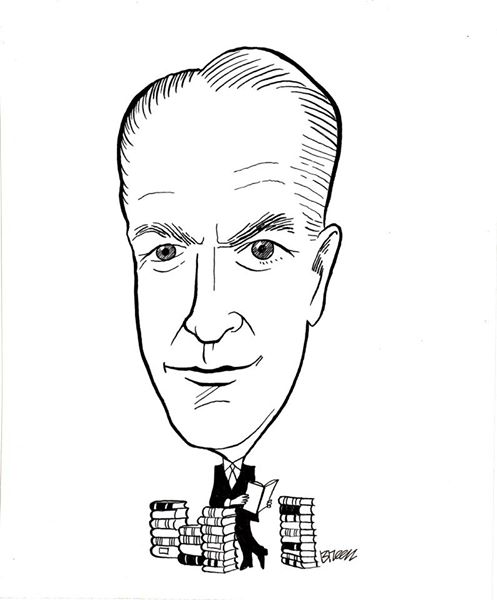

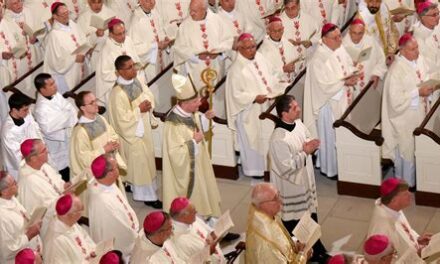
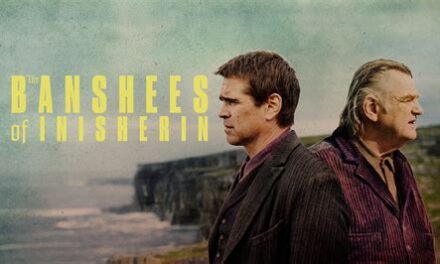
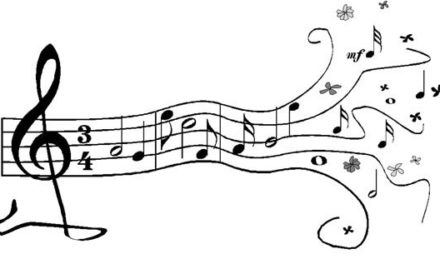


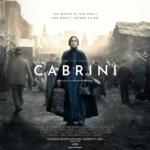


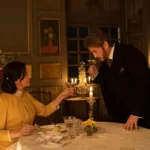



This is wonderful! I am amazed at the superficiality of some of the selections that make their cut. Your list of what’s missing offers a Who’s Who of what we should be reading, especially the generations coming up under us. I think our generation was the last to be exposed to the classics. Thanks!
‘The Medium is the Massage” is actually the correct title of the book. McLuhan left the title as such as a kind of pun.